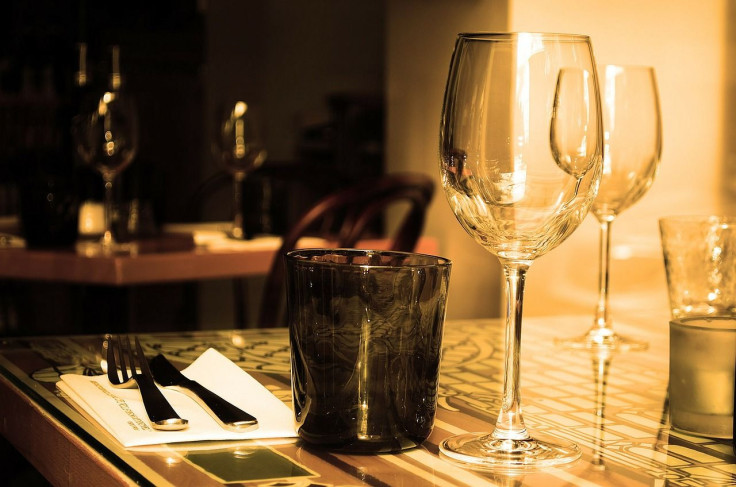Eating In Dimly Lit Restaurants May Make You Overindulge; Perfect Lighting Leads To Healthier Food Decisions

Eating over a candlelit dinner may be romantic, but you’re more likely to end up making unhealthy decisions and eat more than you may have planned. A team of researchers from Cornell University’s Food and Brand Lab, discovered a trick to making consumers more aware of their food choices and it all comes down to lighting. Their findings, published in the Journal of Marketing Research , reveal a simple way to avoid overindulging.
"We feel more alert in brighter rooms and therefore tend to make more healthful, forward-thinking decisions," said the study’s lead author Dipayan Biswas, a professor at the University of South Florida, in a statement.
For the study, Biswas and his team surveyed the food choices of 160 restaurant goers throughout four different casual chain restaurant locations. Half of the diners were seated in brightly-lit rooms while the other half were placed in dimly-lit rooms. Those who ate in rooms with bright lights were between 16 and 24 percent more likely to order healthier options, such as grilled or baked fish, chicken, or vegetables. But those eating in an ambient, dim-lit environment were more likely to order fried foods and desserts. When researchers added up the calories, they found those in dimly lit rooms also ordered 39 percent more calories compared to those in brightly-lit rooms.
Researchers believe ambient, dim lights influence a person’s mental alertness, allowing them to be less self-aware and ultimately make an unhealthy food choice. Next, the team retested their bright lights theory on 700 college-aged students in a series of four different experiments. Diners were divided into two groups: one in a dimly-lit setting and the other in a brightly-lit setting, but this time they were given a caffeine placebo. Researchers hoped this would trick participants into believing they should feel more alert, regardless which setting they dined in. It turns out, the participants made healthier choices in both settings, leading researchers to conclude that it is self-awareness that drives healthier choices and not necessarily the light setting itself.
In fact, dim lighting isn’t as detrimental to your diet as it could be. So long as the diner is alert and doesn’t give into the seductive ambience of the dim lights, they can still maintain a healthy eating experience. Previous research by Cornell’s Food and Brand Lab found dim lights and relaxing music can turn the outing into a fine dining experience and cause people to eat slower. Overall, diners ate 14 percent more calories than those who ate without the fine dining atmosphere. However, fine diners also rated the food, which was the same in both groups, as better when they ate in a dimmer restaurant with relaxing jazz music.
"Dim lighting isn't all bad," said the study’s co-author Brian Wansink, the director of the Cornell Food and Brand Lab, in a statement. "Despite ordering less-healthy foods, you actually end up eating slower, eating less and enjoying the food more."
Wansink concludes: The next time you find yourself “dining-in-the-dark,” don’t become susceptible to the environment. Throughout the meal, and especially while ordering, take your time and be aware of what and how much food and drink you’re coming. You don’t need bright lights to defend yourself against temptation.
Source: Biswas D, Szocs C, Wansink B, and Chacko R. Shining Light on Atmospherics: How Ambient Light Influences Food Choices. Journal of Marketing Research. 2016.



























